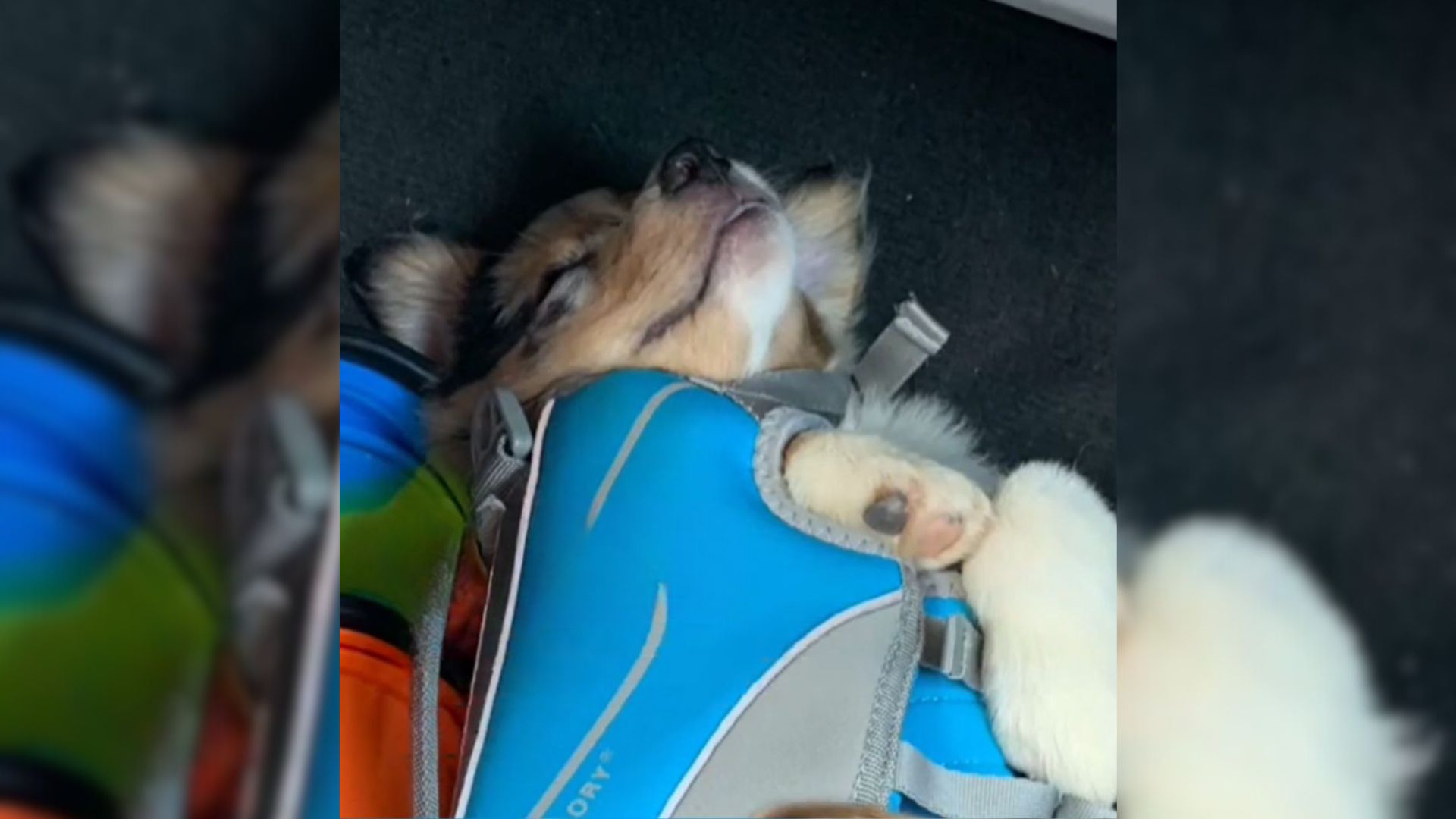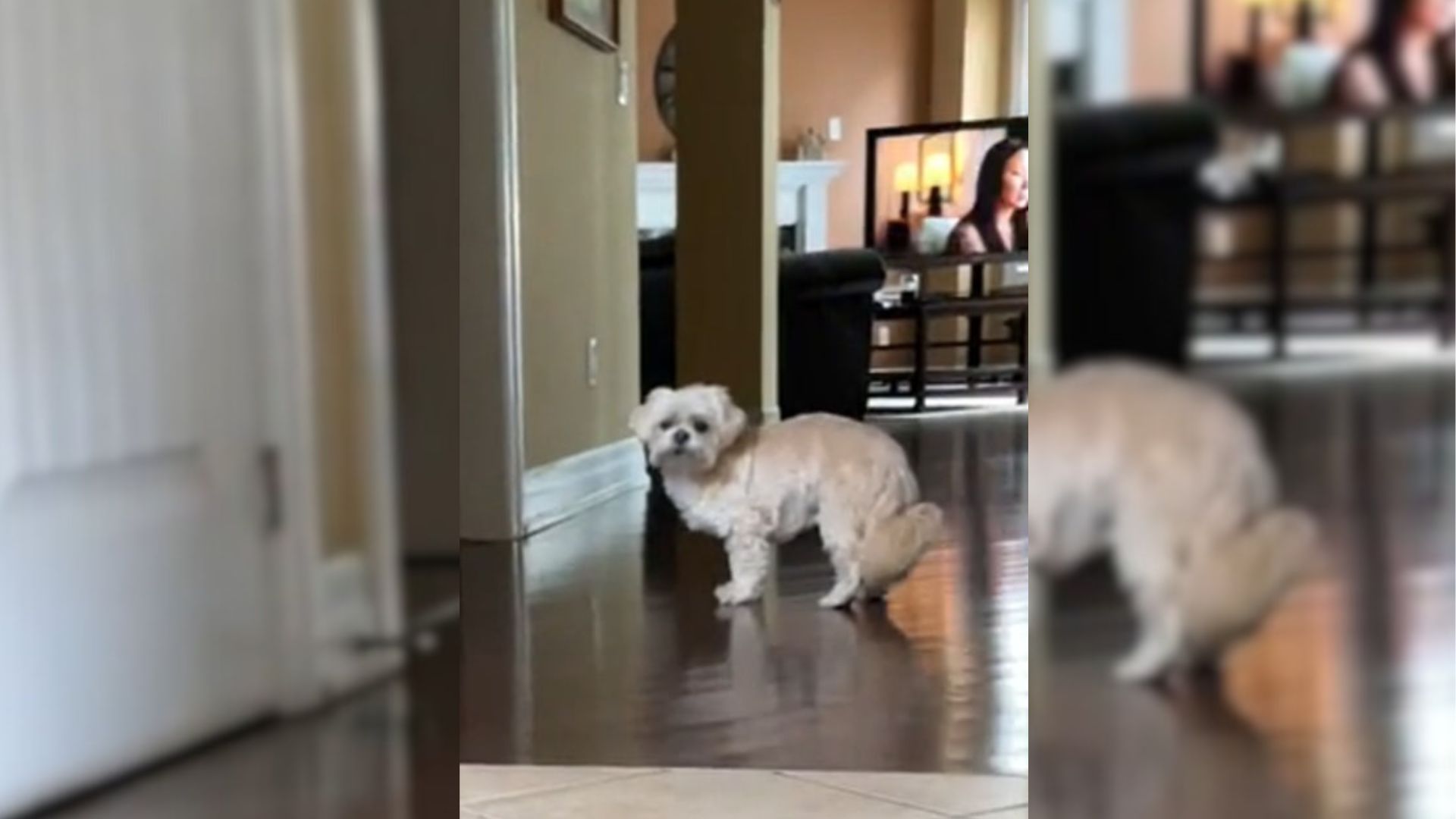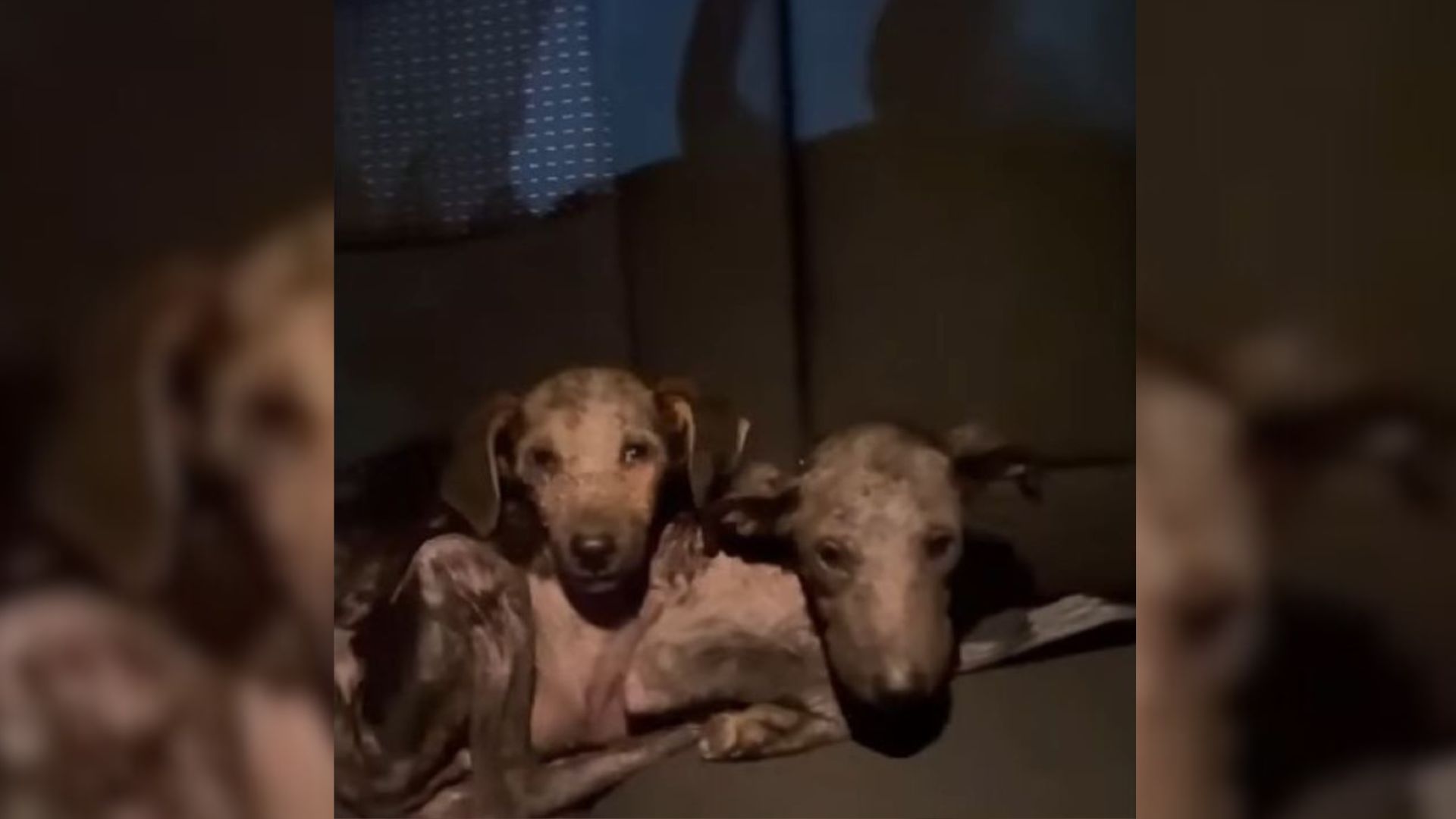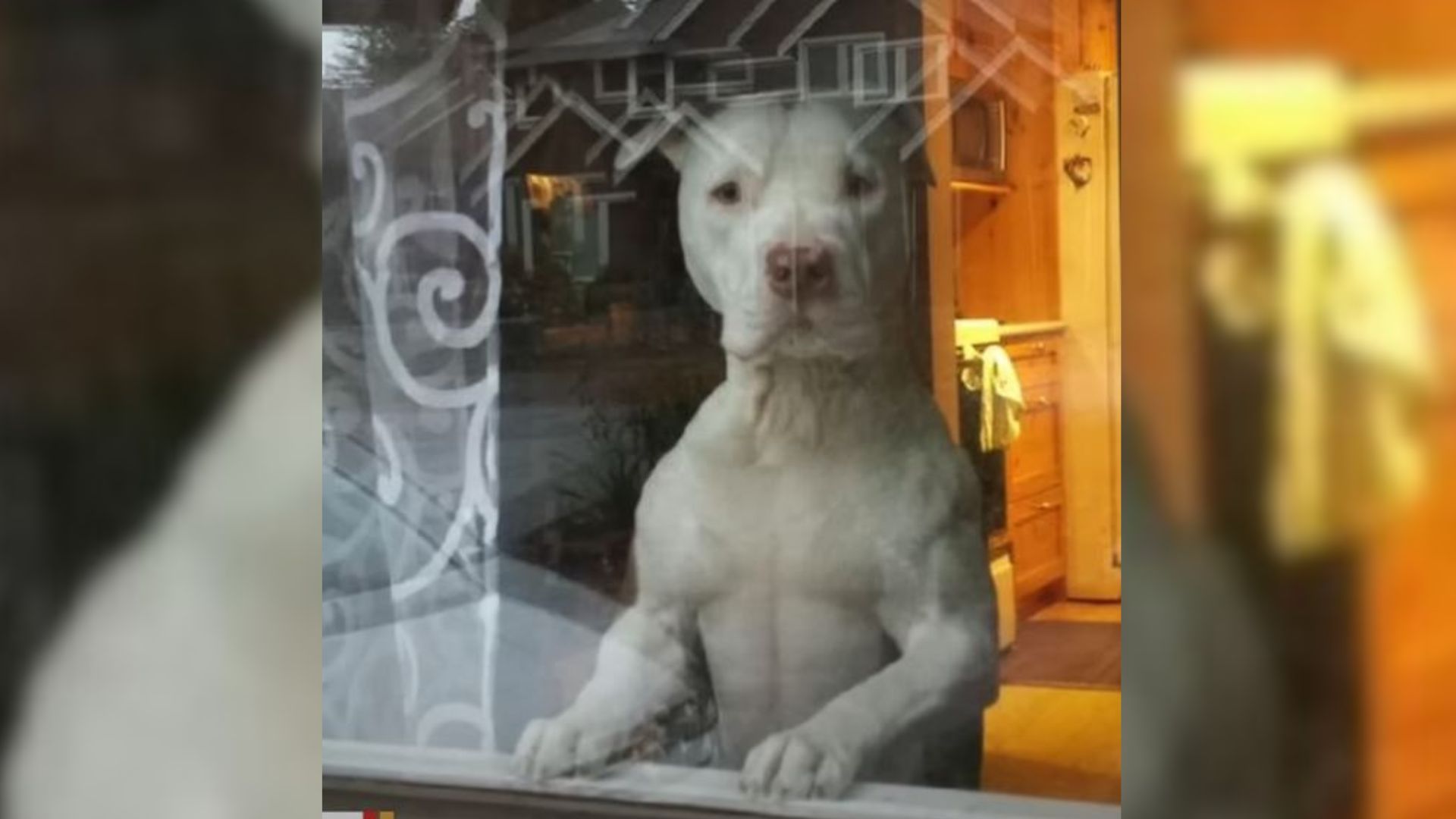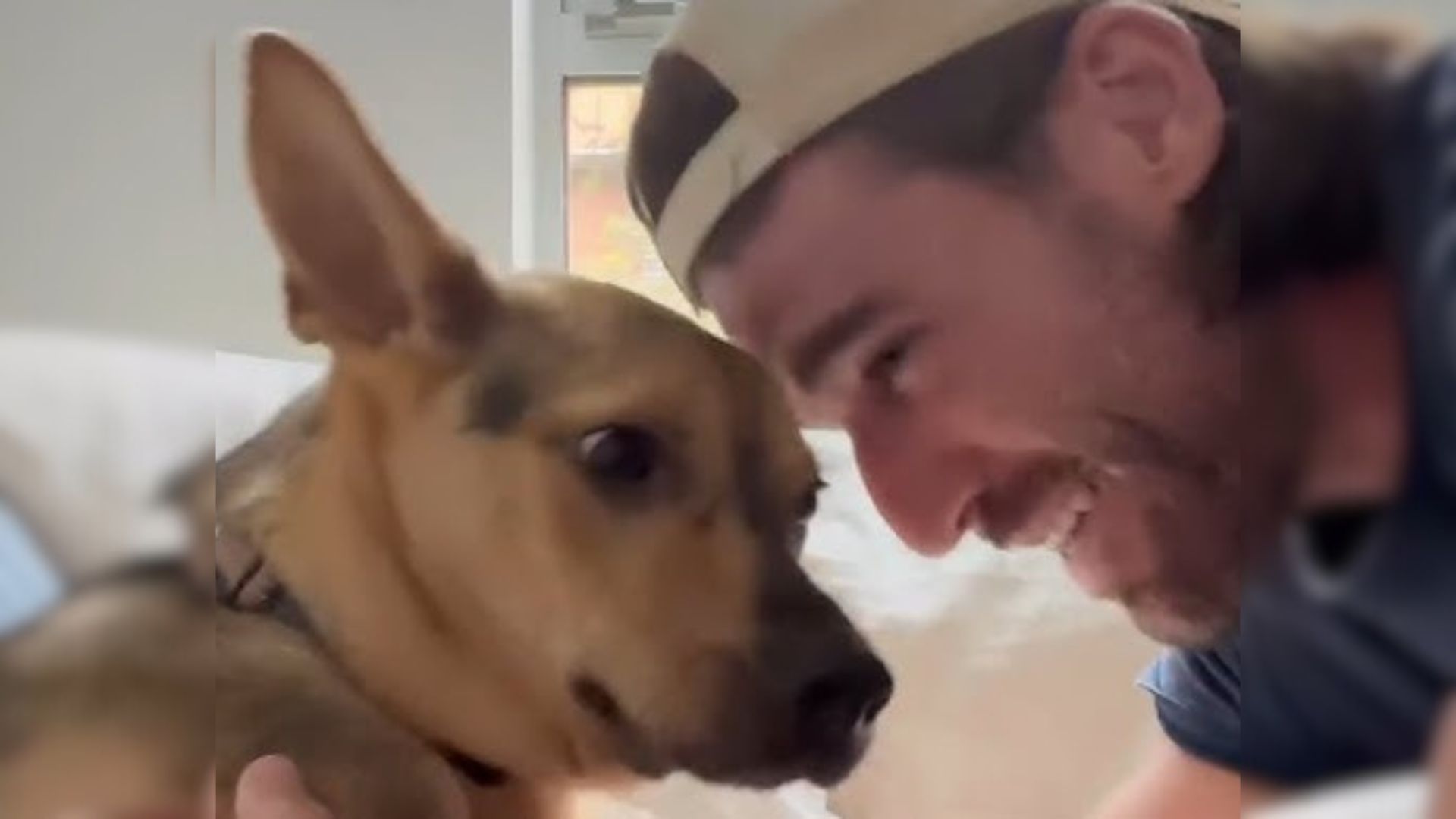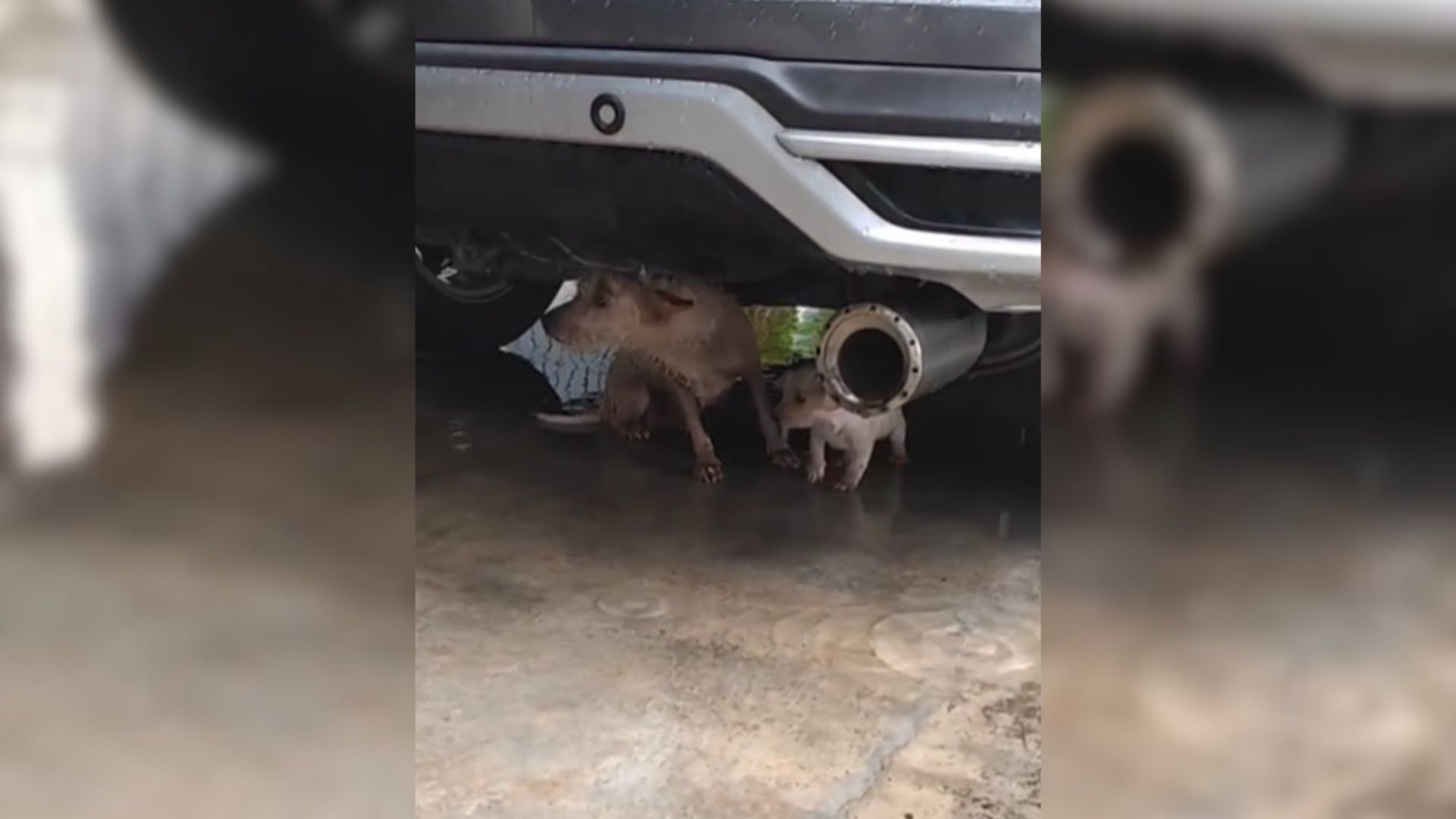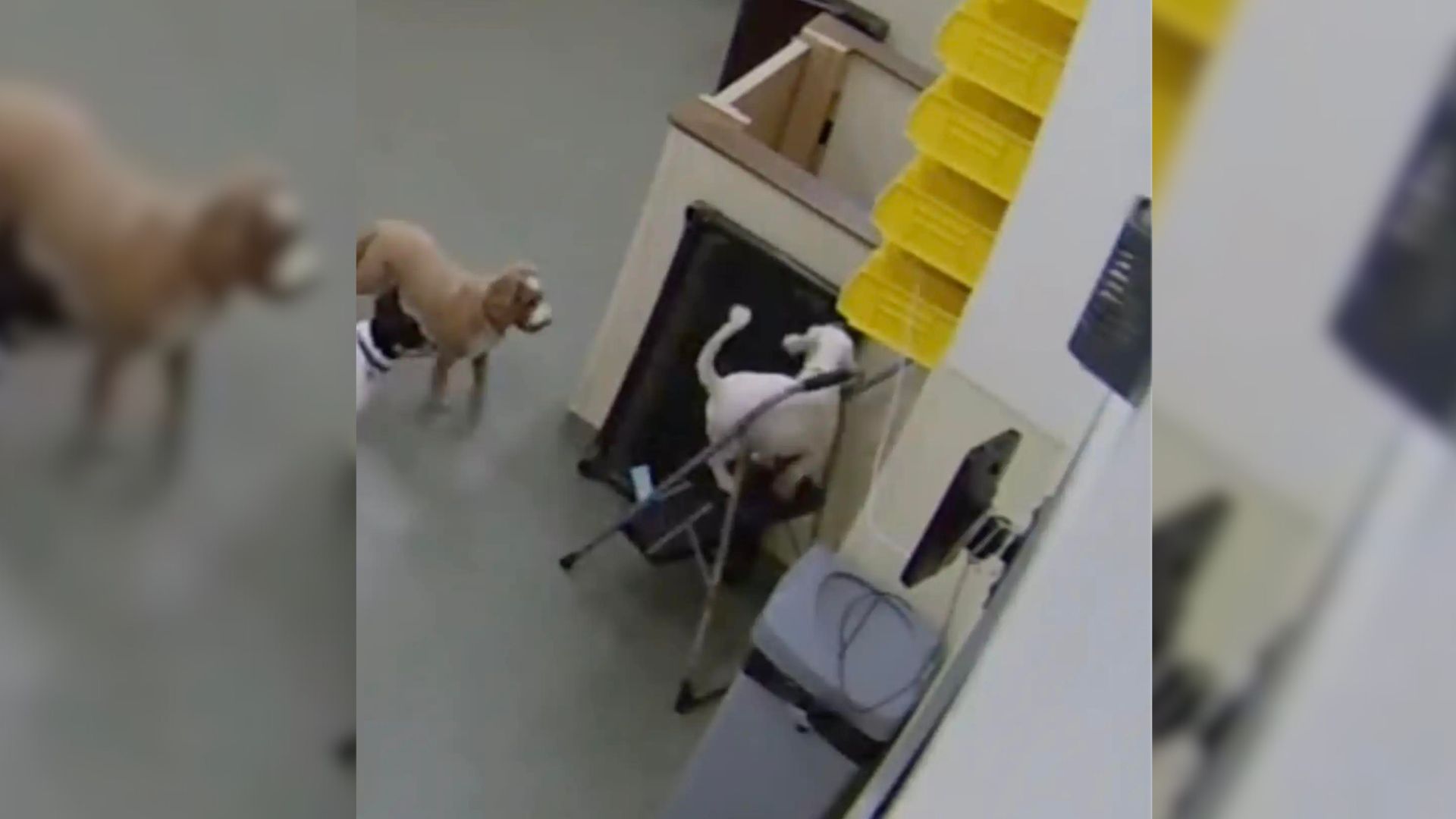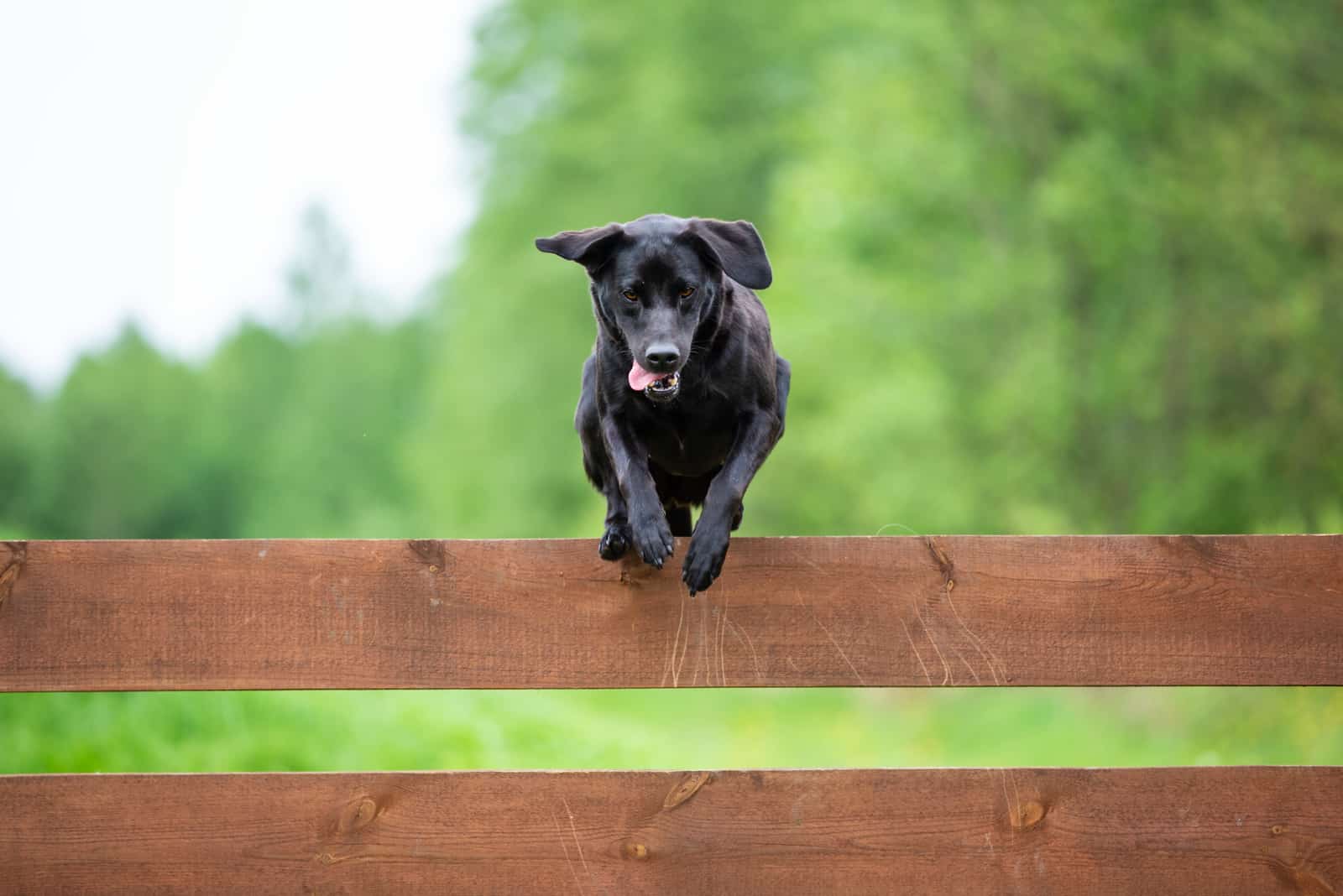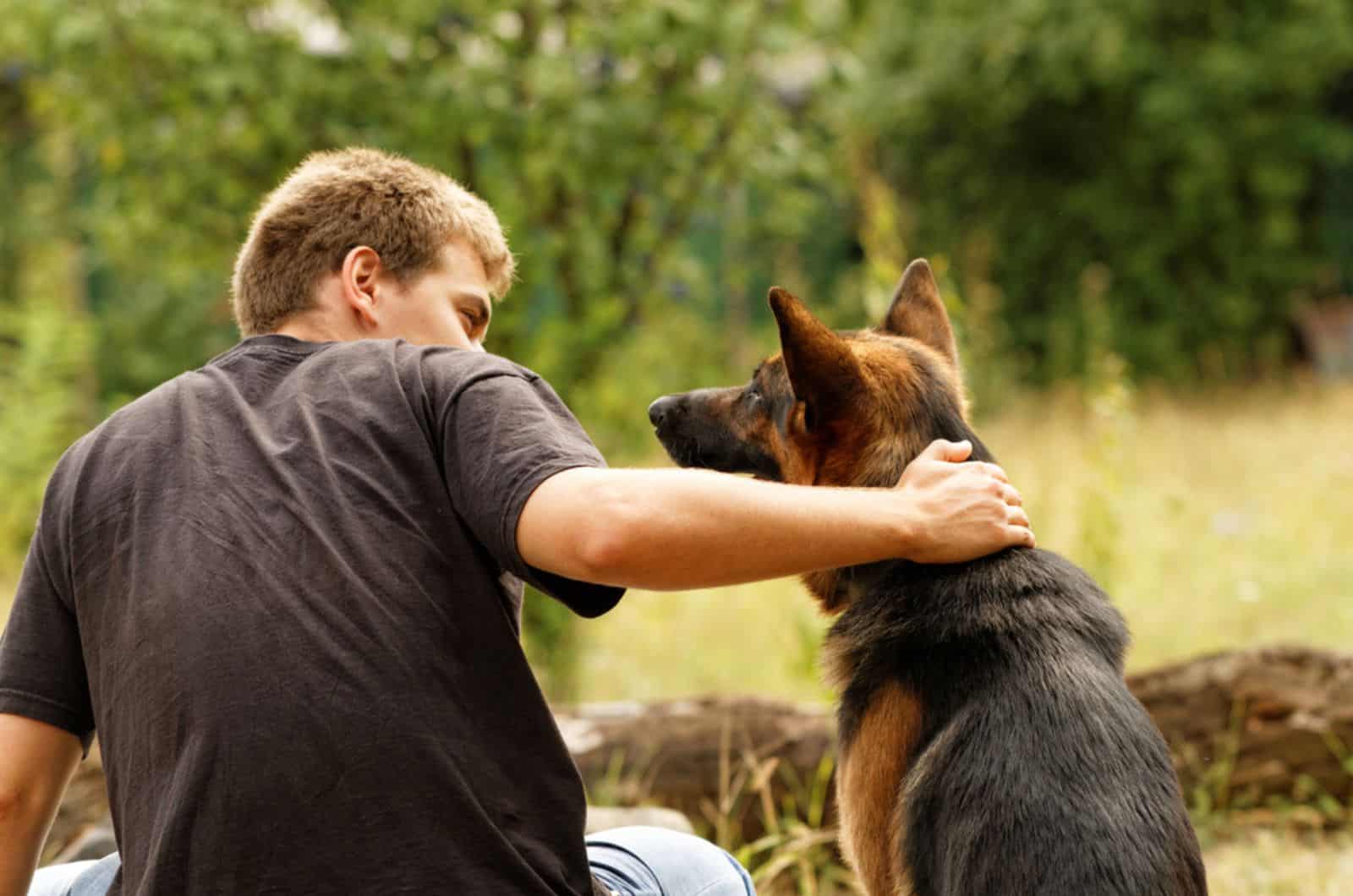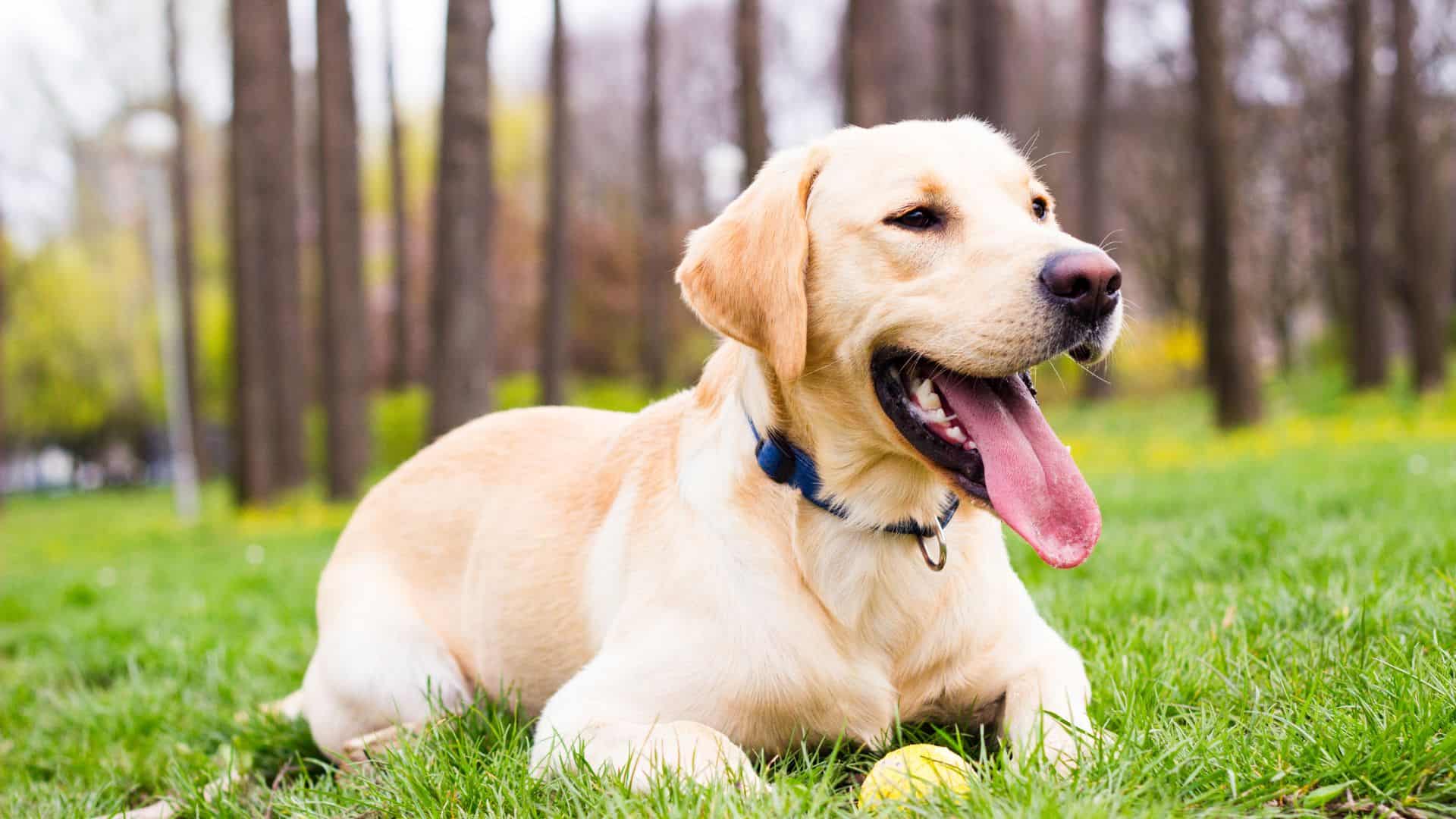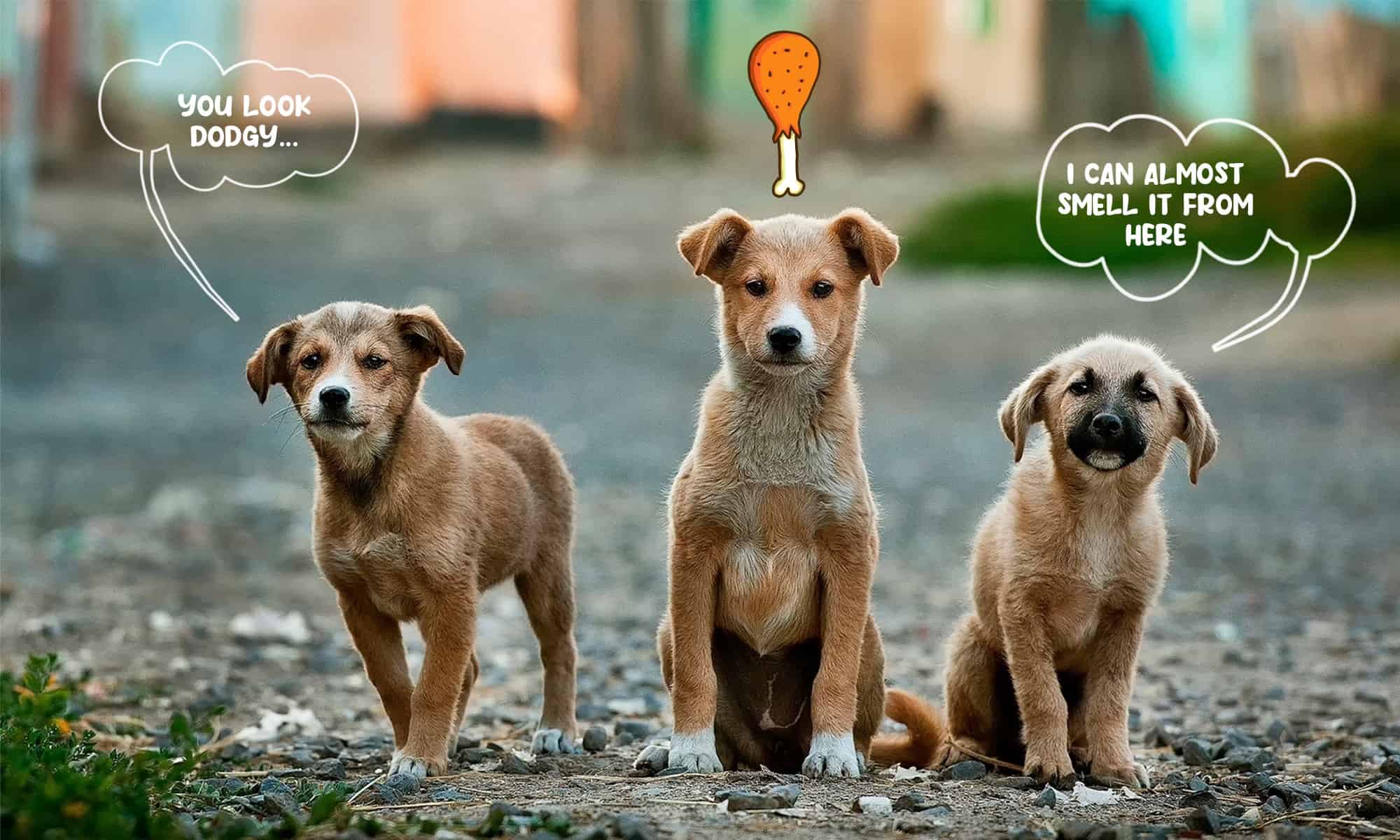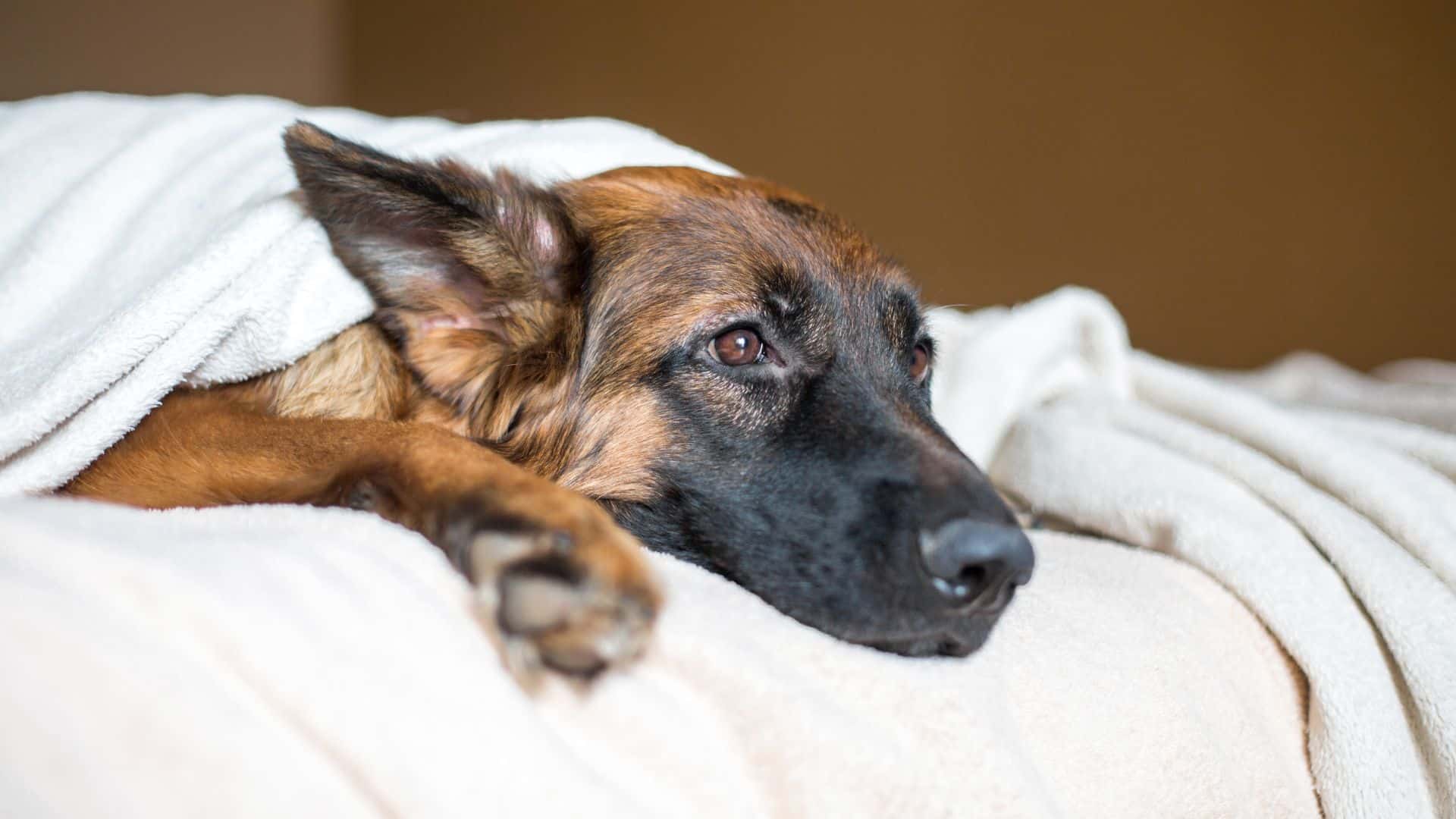Dogs growl for all kinds of reasons. They can’t talk, so they communicate by barking, growling, and using body language. We don’t always know what they mean, but they mostly get their point across somehow.
However, there are times when it’s not clear what’s going on. You might hear your pooch growling for no apparent reason, and this can be worrying, annoying, or spooky!
So, what’s happening? Why is your dog growling at nothing?
We’ll look at the possible reasons for this type of behavior and see what can be done about it.
Why Do Dogs Growl At Nothing?
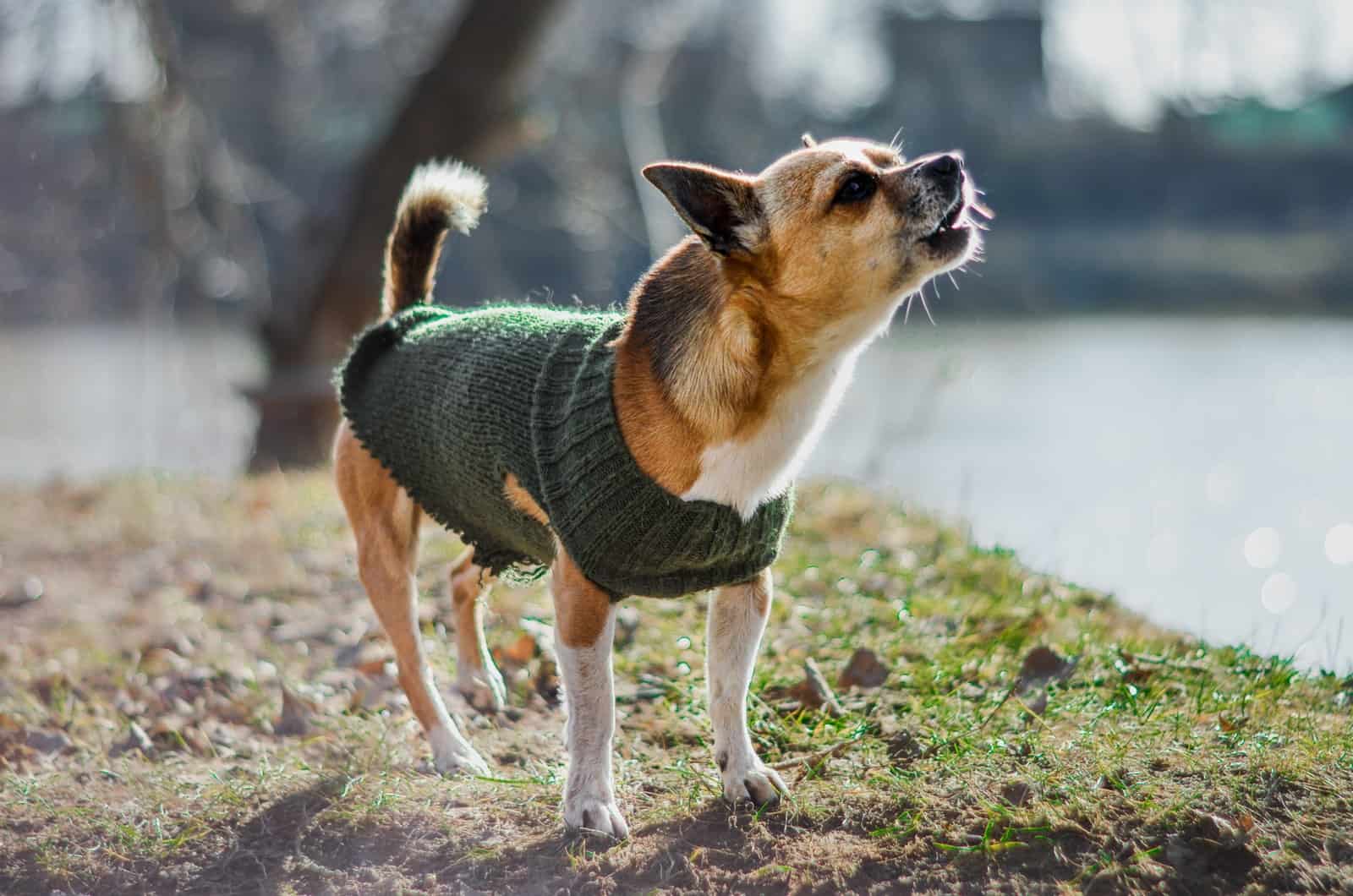
The first thing to stress is that this never actually happens. Think about it – a dog growling at nothing? Oh, they growl alright, but just because you can’t see what your dog is growling at doesn’t mean that there is nothing to growl at! So, we have to accept that dogs are growling at something. It’s just that we aren’t aware of what that something is.
Secondly, we need to take note of the type of growl. Dogs have several basic growls (and possibly many others in between that are too subtle for us to identify) that give pet owners a clue as to how they are feeling and what they are trying to tell us:
• The playful growl – this happens when your pup is leaping around, usually with a toy in its mouth or during a play session with other dogs. You know that this dog doesn’t mean any harm. That tail will be wagging, and you can tell that the dog is playing and having fun, even if its mouth is open and those fangs are bared. Do you play tug of war with your pooch? Then you’ve probably heard it growling while playing!
• The happy growl – similar to the playful growl, but this is often in anticipation of something, like being fed or given a treat. In many breeds, this is accompanied by a shuffling of the front paws and a bouncing or trotting motion. This is also called affectionate growling, as your dog might do this while you pet it. Both this growl and the playful one are often punctuated by fake sneezes, which is another sign that the dog is happy and doesn’t mean any harm. Beware, though, fake sneezes are often used just to get your attention!
• The growl of frustration – we all get frustrated at times, so why should dogs be any different? This one is similar to the happy growl, as it signals anticipation, but there’s a difference: the dog senses that something is stopping it from getting to what it really wants. One classic example is when a physical barrier is stopping the dog from reaching someone or something. It might be that the dog can’t reach a favorite toy, or it’s being deliberately withheld. This growl is frequently misinterpreted as an aggressive act, but it rarely signals any real aggression.
• The growl of pain – if your dog is injured or sick, then it might growl when anyone approaches or touches the affected area. If this is the case, don’t spend too long poking around – get your pooch to the vet and let them take a look!
• The growl of fear – this is usually in response to a situation that the dog is uncomfortable with, such as meeting strangers or unfamiliar dogs. Fearful dogs don’t really want to fight – they are merely saying, go away! If the perceived threat doesn’t listen, then they will progress to snarling and baring their teeth. Try to recognize this behavior and remove the threat, or remove the dog from the situation.
• The warning growl – this is one to take notice of. When a dog is afraid, possessive, protective, nervous, or territorial, it will utter a low-pitched growl, often with its mouth closed. To be certain, watch its body language. If you are trying to take something from the dog, or it isn’t happy about you approaching, then it’s wise to listen. Obviously, by this stage, we are past the warning growl, and the dog is ready to fight. This could be to chase prey or attack a rival dog and assert its authority over them.
So, we have at least five different types of growls that dog owners need to recognize. Without learning these, it won’t be possible to fully understand your dog’s behavior.
Let’s move on to see what else we can discover about your dog growling at nothing.
What Does It Mean When A Dog Growls At Nothing?

We’ve already established that when people ask, why is my dog growling at nothing? there is usually something there, but we just can’t see it. As for what it means, well, that’s not always straightforward. To put it simply, it means that your dog is unhappy, unsettled, or simply trying to warn you. It’s up to you to find the cause.
The first thing you need to do is to pay attention and listen to the type of growl. It’s unlikely to be a happy or playful growl, but it’s just as well to be sure. Once you’ve ruled these two out, look for any obvious causes:
Health Problems
Does your pooch show any symptoms of sickness? Do they look like they’re in pain? Is the growling accompanied by any other vocalization, such as barking, whining, or yelping?
We’ll go into some of the health issues that can cause behavioral changes in dogs later, including unexplained random growling, especially in senior dogs.
If you discover any sore patches, lumps, or injuries, then you obviously need to get your furry friend to the vet!
Separation anxiety
Many dogs can’t handle being left alone for long periods of time. And to some dogs, ten minutes is too long! Our canine friends are built for companionship. They are pack animals that thrive on company, and their close relationship with humans has been bred into them for thousands of years.
So, when they are separated from us, they sometimes act up. This can take the form of excessive barking, howling, destroying your furniture, forgetting their potty training, and growling. You might only be in the next room when you hear your dog growling at nothing, probably because they can’t get to you, whether this is deliberate or by accident.
In extreme cases, it is advisable to contact an animal behaviorist who will help your dog accept your absence at certain times. One of the best ways to reduce your dog’s anxiety is by desensitizing them to your actions and getting them used to your absence.
Try not to fuss when you leave the house and wait five minutes before greeting your pooch when you arrive home. This reduces the excitement and tension around these times, helping to normalize the process. Dogs are clever at noticing the signs that you’re about to go out. They know that when you pick up a purse or car keys that you’re on your way out, and they’ll fuss around your feet and get in the way to grab your attention.
Get your purse or wallet, even when you’re staying home. Put on your coat, but watch TV. Get your shoes, but keep them by you on the floor and carry on reading. Mix up all these actions for a couple of weeks, and you’ll notice that your dog no longer reacts. They’ll be much calmer when you leave and when you return.
You can also use dog training to help them cope. Make them sit and stay in one space while you walk out of the room. Leave them for five minutes, then call them to you. Repeat this, moving further away and leaving a longer gap each time. Always reward them when they do well, as positive reinforcement gets the best results every time.
Protectiveness
Many dog breeds are super-protective and will growl or bark at almost anything they regard as a threat. Again, it’s important to identify what kind of growl it is. This is easier when your dog is relaxed, either in its bed or lying by your side. If there’s nothing exciting going on, your canine buddy is not interacting with anyone (playing, being petted, having cuddles, etc.), and they aren’t guarding any food, treats, or toys, then you can safely say that the growl is alerting you to something. The dog has sensed that there’s a potential threat to you and other family members, and they’re just letting you know that they are keeping you safe.
It isn’t loud enough to scare off an intruder. That’s why your dog barks. Even if this behavior gets really annoying, it’s not wise to punish a dog growling at nothing, as this will be counterproductive and confuse them.
Dogs pick up high-frequency sounds that we don’t hear. These can be made by wild animals, vehicles, electrical equipment, planes passing overhead, and many other things. These can be frightening as the dog doesn’t understand them and will recognize them as a threat.
If growling becomes a nuisance, you could try using a white noise generator to mask these sounds.
Why Is My Dog Growling At Nothing At Night?

This is probably when it bothers us the most!
The house is in darkness, possibly with the odd light on, and all is silent. Then we hear the dog’s low, rumbling growl, but we can’t see or hear the cause. And that’s when our imagination conjures all sorts of spooky and fantastical possibilities. Such as ghosts.
Let’s examine this honestly for a moment. You’ll probably fall into one of three categories:
• You’re a firm believer in the supernatural – ghosts are real!
• You aren’t sure about the supernatural but need convincing either way – you keep an open mind but need solid proof.
• You know that it’s all a load of baloney.
If you’re in the first and second category, you might wonder if your furry pal has sensed something unseen, a spirit or paranormal presence.
Some animal specialists (if they’re in the ‘baloney’ category) deny that dogs have a sixth sense. From a purely scientific standpoint, this is plain wrong. It has become abundantly clear that dogs (and many other species) have abilities far beyond what we can perceive or understand.
Does this mean that your dog is growling at the ghost of Great Aunt Gertrude, who passed away exactly a year ago at that very hour? Well, who can say for certain?
However, it’s much more likely that your pooch has picked up on a sound or scent that’s far outside our range. They are much better equipped than us when it comes to night vision and have an acute sense of smell. Your dog smells traces of animals that you don’t have a hope of detecting, especially if a window or vent is open. They can detect the smallest movement in dark conditions when we would be blinking into the inky blackness and wondering what was out there.
We also know that dogs can predict earthquakes and other natural phenomena. The build-up of pressure in the ground creates sounds for several days before the event. We can’t hear these higher frequencies, but dogs can, and it makes them act out of character.
So who’s to say that dogs can’t detect other types of subtle energy? Science has established that everything is energy vibrating at different frequencies, so why should dogs not sense things that we can’t? Again, we’re not saying that dogs should go ahead and join the Ghostbusters, just that there’s still much that we don’t understand, and it’s good to keep an open mind.
The main thing to remember is that your dog is trying to communicate with you. It is highly likely that it has detected something, whether it’s a potential intruder, a wild animal, mice in the drywall, a passing cat, a strange car, or the ghost of a civil war soldier… Okay, perhaps not that last one!
Growling is their way of giving an initial warning to let you know that there is a potential threat. They love their families and want to protect them, so you should never get cross with them for doing so.
Blind Dog Growling At Nothing

There are several different causes of blindness in dogs, many of which are incurable. Some of these are gradual, and the dog’s eyesight will progressively deteriorate over time. Occasionally, blindness can happen almost overnight.
Whatever the cause and however quickly it happens, this is a scary and unsettling time for your dog. During the process of becoming blind, your dog won’t understand what’s going on. Things that were once clear to them will become vague shapes. Objects that are out of place become obstacles that cause confusion and alarm.
Blind dogs very often come to terms with their condition fairly quickly and learn to cope well. Even so, their world has changed, and they perceive it differently.
Some will have a tendency to growl, seemingly for no reason. It’s usually a way of making them feel safe, establishing boundaries within their new, sightless world.
It could also be that they are relying more on their hearing and reacting to any sounds because they feel unable to do much else. They could simply be telling you that they heard something.
The main thing is to acknowledge it. Reassure your dog and make them feel safe. Never get cross with them for growling, as this is their way of communicating with you.
Why Is My Old Dog Growling At Nothing?
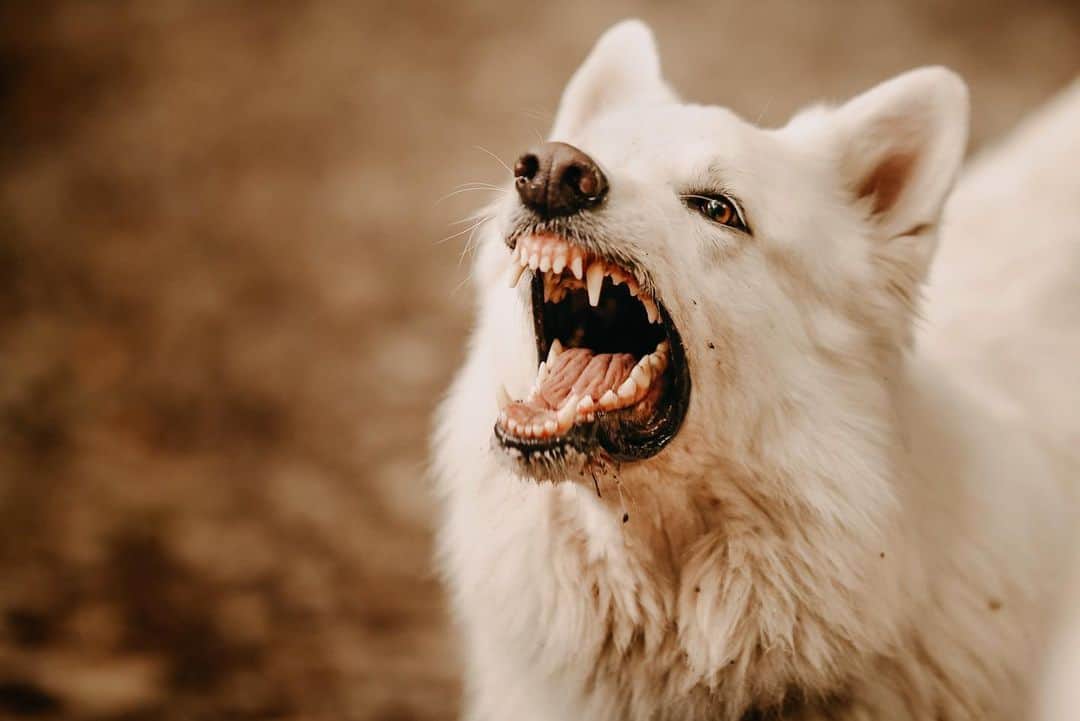
Photo from: @small_town_wolves
Sadly, this could be due to canine dementia or cognitive dysfunction.
Just like humans, dogs can suffer as they grow older. The brain is often affected the most by conditions such as Alzheimer’s and dementia. The damage is sometimes caused by diseases, but also because less oxygen is being sent to the brain. This leads to the loss of brain cells and a gradual deterioration of cognitive function.
You might notice your elderly dog staring at the wall or pacing aimlessly around the house. They might bark or growl at nothing, especially at night. As well as having dementia, your pooch’s hearing and eyesight won’t be as good as it once was. Sounds and sights that were once familiar might now be strange and confusing.
If having dementia wasn’t enough, old dogs have to put up with stiff and aching joints. This can make them growl and whine when they are trying to rest and get comfortable. They might also grumble a bit if you pet them and touch a painful joint.
If this happens, don’t just shrug it off and say that it’s just old age. Take your dog to the vet for a health check, as they may be able to help ease its condition, even if it’s just to prescribe pain medication or mild sedatives to make sure that the dog sleeps through the night.
What Should You Do If Your Dog Growls At Nothing?

What drew you to this article? Perhaps you Googled why does my dog growl at nothing? Maybe you’re spooked by your pooch growling in the night when there doesn’t seem to be any good cause?
Whatever brought you here, you’re probably looking for some advice, and you’ve hopefully found the answer somewhere on this page.
So, now we know the reasons for your dog growling at nothing, we need to look at ways of stopping them.
Establish what type of growl it is in the first place.
If it’s a playful or happy growl, then all is well, and you don’t need to act. If your dog feels frustrated, that’s not great, but it’s just part of life. Try to remove the source of frustration as soon as you can if you sense that your pooch is becoming too agitated and edging towards aggression.
A growl of pain is a clear sign that you need to book a visit to the vet. Hopefully, it will be something that can easily be fixed with some TLC and medication. Whatever it is, it’s always best to be safe. If it is something serious, your dog stands a better chance of recovery if the cause is diagnosed early enough.
We covered separation anxiety fairly well and suggested some solutions to this problem, so we won’t dwell on that here.
Growls of fear and aggression can signal that there is a problem. If your canine buddy isn’t usually aggressive, then you need to find and fix the problem – fast. Early training and socialization are the best ways to eliminate aggression as they get your dog used to the company of strangers as well as other dogs and animals. It’s always good to get help and advice from a professional dog trainer, as they can make a real difference to your dog’s behavior.
Dealing with fear is more tricky, as it’s difficult to control what your dog is scared of. Occasionally, the cause is clear and can be something mundane: a rogue helium balloon, a Halloween mask, an unfamiliar noise, the vacuum cleaner, and so on. Other times, you’ll be left scratching your head as the true cause won’t be apparent. All you can do in these situations is keep calm and reassure your dog as best you can. Try to distract them with playtime or treats during the day, and (if it’s practical) keep them close by your bedside at night.
Finally, we come to the warning growl, which is usually the main reason for your dog growling at nothing.
It’s worth saying again that dogs always growl for a reason, and you’ll never find a dog growling at nothing. When you hear your dog growling, take note of the situation. What’s going on in the home? Are you alone with the dog? Are there other family members around?
What is the dog’s body language telling you?
If the growling progresses to frantic barking, you might want to check security cameras, make a note of the time and have your phone ready to dial for help if necessary. Your dog wants to keep you safe, which is why they will warn you when they sense danger, even if you can’t see any reason for alarm.
This shouldn’t be a problem, as your dog loves to protect you, and you don’t want to discourage this. However, if this behavior is regularly repeated and becomes a nuisance, then you need to deal with it.
The best way is to make sure that you have a routine. Dogs love routine! Give them plenty of exercise and keep them mentally stimulated with puzzle toys and games, as this will ensure that they are happy and won’t easily become bored. When they use up their energy, it helps them to be more relaxed.
Crate training is an excellent means of behavior modification. You give your dog a comfortable space where it feels safe and secure, and they, therefore, are less likely to overreact to noises or smells from outside.
Above all, be patient and work with your dog to understand the problem. Stay calm and reassuring, and never punish your pooch for growling.
After all, it’s just their way of talking to you. It’s up to you to discover what they’re saying..

